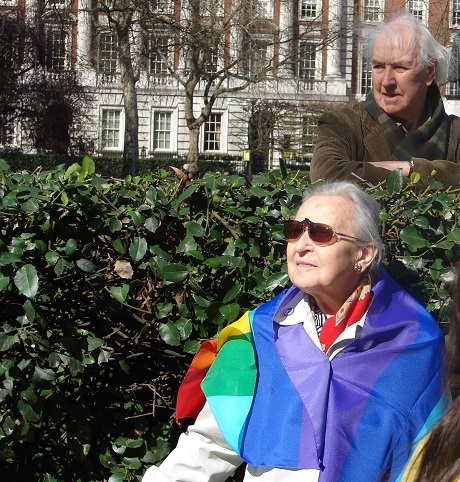Photo: I.Rimanoczy
As I was working on my research about the sustainability mindset -- and the global unsustainability of our current behaviors -- it occurred to me that many aspects that characterize the urban humans' problematic way of acting seem to be extremely similar to natural adolescent traits. Certainly, adolescence varies with context and culture -- yet overall it can be defined as the transitional period between puberty and adulthood in human development, a period or stage preceding maturity.
What if we, urban humans as a species, were going through adolescence? Think for a moment.
Adolescents have little consciousness of risk or of mortality. They take life for granted as a flow that goes on forever. In similar ways, we take our lifestyle, supported as it is by natural resources, as something that is simply there, stable, and endless. We are shocked or astonished if a drought threatens the flow of water from our faucets, if a volcano's smoke disrupts flights across the globe, or if we hear that there may be a time with no more bees, which means a big challenge to growing food because of the natural pollination services that bees provide.
The "long term" for a teen is the end of the semester, or perhaps next year. You may call it myopia, but that is their frame of reference. Therefore short-term satisfaction becomes the expectation, and impatience accompanies it. Our urban species has found in adulthood a reinforcement of this and the market place stimulates our desires for instant gratification. While as adults we are used to planning for retirement or regularly making business plans, we have a hard time considering the long term impacts of using battery operated gadgets, of driving to work, or of eating too much sugar. What counts is the moment. Carpe diem.
Psychologists agree that adolescence is inherently a time of disturbance and psychological confusion, as the young are trying to develop an identity. We urban humans, like to prove our strength, test our limits and defy nature. Extreme sports or extreme physical challenge are socially accepted, even if we "know" that concussions can impact the functioning of our brain or other body parts. Our assumption is that "nothing can be that serious." When construction sites multiply on low-lying terrain, such as in Miami or encroaching on the shrinking Everglades, we are testing limits and collectively believe that "nothing can be that serious."
Developmental researchers observe that adolescents place an extremely high emphasis on peer approval as they develop self-esteem. Brands have become the economic manifestation of this need, posing a solution to the desire of belonging, being seen as "part of" a certain group of reference. Do you pod, phone, pad? Yes, I pod, I phone, I pad...
At the same time, identity formation invites some teens to overpower others, show who his stronger, better, through the use of physical or psychological force. We can easily recognize this in the way political leaders handle differences and disagreements. Even architecture becomes a testosterone guided landscape of "who has the tallest buildings."
In parallel with the need to align and be as others, adolescents also strive towards total autonomy/independence. Many feel "I don't need others and can do alone," a drive that helps them in their evolution. Interestingly, the more urban we are, the more we stick to the belief that we actually can be totally independent and autonomous, something that would never cross the mind of rural villagers. They understand the interconnectedness that supports us all.
In the adolescent development, researchers describe evolutionary egocentrism as being "about me, what's in it for me." I have heard a neighbor refusing to recycle because the "extra work" of separating garbage and taking it to a special bin didn't have any visible benefits for her. She was simply not interested; it is not worth the bother. Or corporate decisions taken in disregard of the unemployment they would create. "Not my problem."
But with all of this, adolescents are also those that can blindly go for their dreams, for their ideals, stand in front of a rolling tank, offer a flower to a riot-policeman, speak up risking their lives ("nothing can be that serious"), challenge the powerful and be totally disrespectful of the "status quo." They are utopian, and when they get together with one friend that shares their dream, that may be enough to convince them they "can do it." They act from the belief that nothing can stop them. Actually, they are not utopian. They believe in making their ideals happen, and for them this is not fiction.
Now that gives me hope for us, the adolescent urban adults. I think I am meeting many of those.

